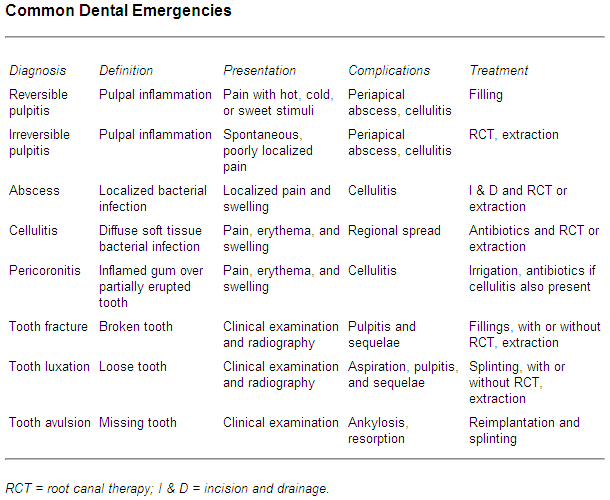FAQ
Dental Care for Children
A child’s dental care begins at birth. A pregnant woman’s diet affects the development of her unborn child’s teeth, which needs sufficient nutrients to be healthy. Pregnancy can also cause changes in a woman’s dental health. A woman should inform her dentist if she is pregnant to receive appropriate dental treatment. Routine dental care is contraindicated at certain stages of pregnancy.
How can I care for my baby’s gums?
Mouth care should begin at birth. After each feeding, gently wipe the baby’s gums with a soft, damp washcloth or a gauze pad.
What about teething?
The discomfort of teeth entering the mouth can cause your baby to become irritable. You can ease pain by lightly rubbing the baby’s gums with a clean finger or a wet gauze pad. A cold teething ring can also help to soothe your baby’s tender gums.
When will my baby’s teeth come in?
Central incisor: 6-12 months Lateral incisor: 9-16 months Canines: 16-23 months First molars: 13-19 months Second molars: 22-33 months
Teeth begin forming in your baby even before birth. All 20 primary teeth – also called baby teeth – are present in the jawbones at birth. The lower two front teeth are the first to erupt. This occurs somewhere around six months after birth. Do not be concerned if your baby is a little late. The numbers are only an average. By age 3, all 20 primary teeth should be present.12
Dental Emergency

When should be the first dental visit?
Your child should visit the dentist by his first birthday. You can make the first visit to the dentist enjoyable and positive. Tell your child in advance that someone will look at his teeth and clean them. Allow the dentist and her staff to introduce other procedures. Your dentist will examine your child’s mouth for early signs of decay or other problems. The dentist will also tell you many things you will need to know about helping your child grow up cavity-free.
What kind of toothbrush/paste should I choose?
When the first teeth appear, use a children’s soft-bristle toothbrush to clean them. Ensure that you do not use any toothpaste on the brush for children younger than 3-4 years (until they can understand instructions so as not to ingest the toothpaste, which can be harmful due to fluoride content). The amount of toothpaste to be used on children’s brushes should not be more significant than the size of a small pea.
The following early warning signs may indicate that your child should have an Orthodontic Examination.
- Early or late loss of primary teeth
- Difficulty in biting or chewing
- Mouth breathing
- Finger-sucking or other oral habits crowded, misplaced, or blocked out teeth.
- Speech difficulty
- Biting the cheek
- Protruding teeth
- Teeth that meet abnormally or do not meet at all.
What age is ideal for Orthodontic treatment?
Tooth movements are done ideally after all permanent teeth erupt, i.e., after 12 years. But growth modifications must be done at an earlier age, i.e., 6-10 years.
How do Orthodontists straighten teeth?
Tooth movement is accomplished by light pressure applied to teeth using brackets & other attachments.
Will it hurt?
Discomfort lasting 48 to 72 hours is seen when we start moving teeth. Each subsequent adjustment will cause minor pain, although patients report less discomfort as the treatment progresses.
How long will treatment take?
The average treatment time varies from 12 months to 24 months. Minor space closing etc. can be achieved in a few months.
Will the improvement be permanent?
Proper use of retainers following treatment will minimize minor movements or relapse.
ROOT CANAL TREATMENT
Is Root canal treatment painful?
Root canal treatment does not cause pain; it relieves pain. Most patients see their dentist when they have a severe toothache. Damaged tissues can cause toothache. Root canal treatment is the pain you feel. With the latest technologies and anesthetics, root canal treatment today is no more uncomfortable than having a filling placed.
Can Root canal treatment cause illness?
Root canal treatment is a safe and effective procedure. Research has shown no relationship between the presence of root canal-treated teeth and illness.
Are there any alternatives to root canal treatment?
If root canal treatment is indicated, there is no alternative but an extraction. Root canal treatment deals with the inner aspects of a tooth, unlike other dental procedures. If such treatment is not possible, then the tooth should be extracted.
Should the tooth be extracted rather than go in for root canal treatment?
The cost or simplicity of a tooth extraction might seem attractive compared to RCT, but this solution might not be the long run’s easiest or least expensive treatment choice. When a tooth is missing, neighboring teeth sometimes shift significantly. This can have a significant impact on dental health. Even the removal of a single tooth can lead to problems related to chewing, problems with the jaw joint, and predispose the teeth, which have shifted to issues as well.




